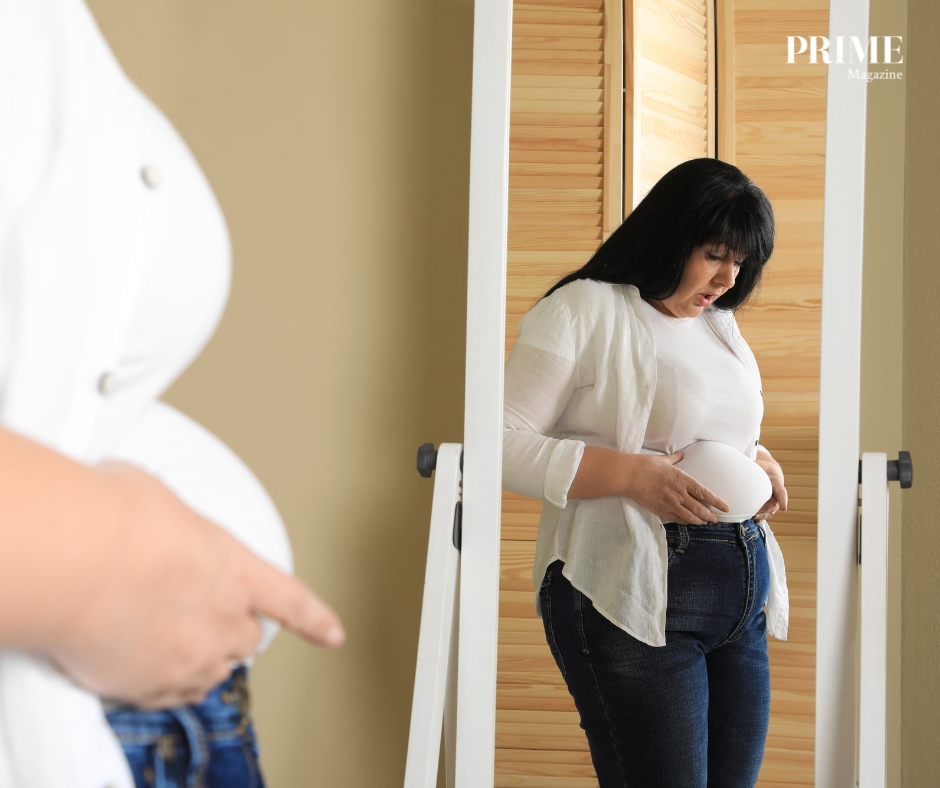
If you’ve ever glanced in the mirror at night and wondered how your once-flat stomach turned into a rounder version of itself, you’re not alone. Many people over 40 notice that their stomach is flatter in the morning and more bloated by evening — and it’s not always about overeating.
This daily change is completely normal, but it can be uncomfortable and frustrating. Here’s why it happens, and what you can do to minimise the difference.
Your Digestive System Works in Cycles
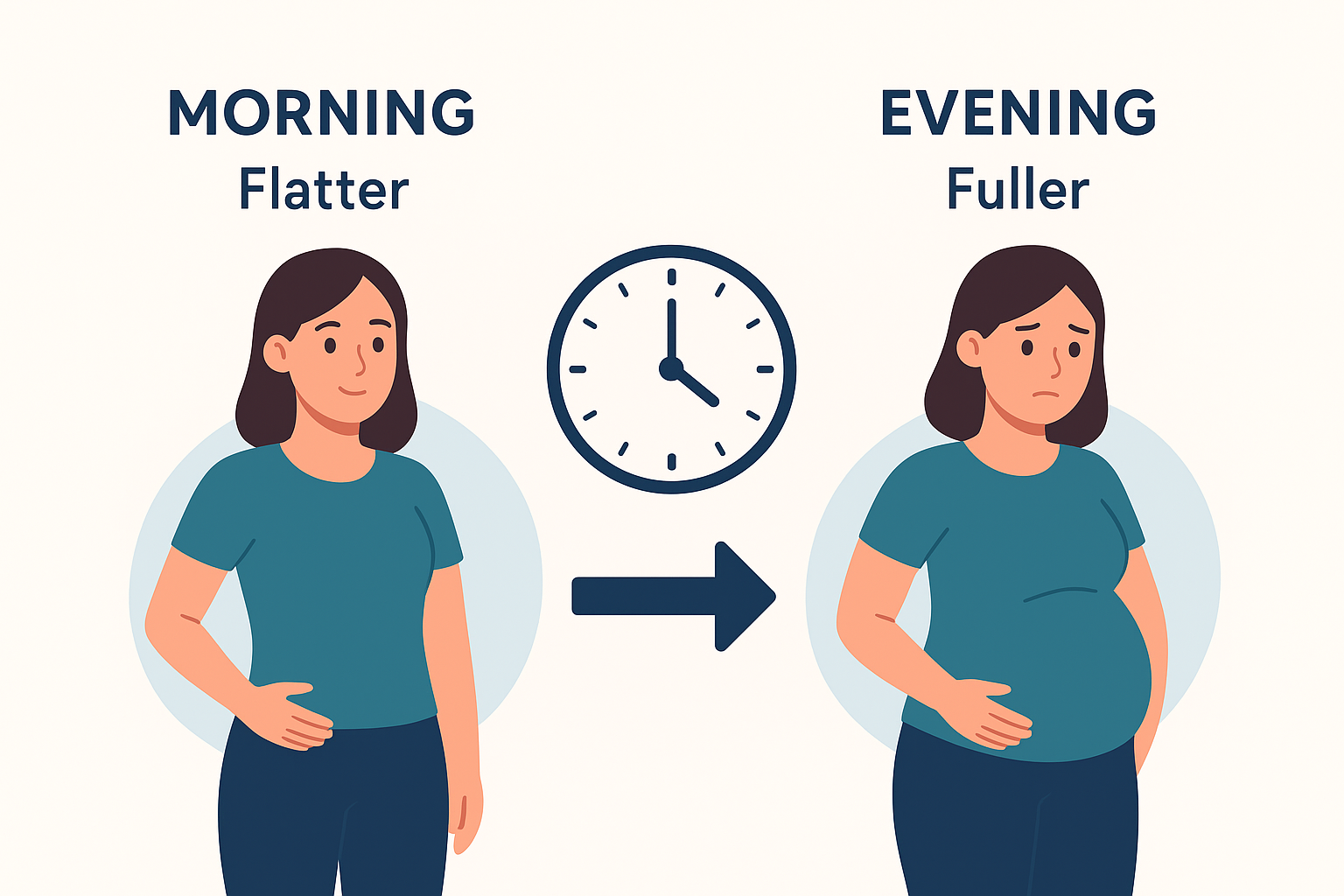
When you sleep, your digestive system gets a break. Overnight, your body processes whatever’s left in your gut, gas levels drop, and inflammation calms down. That’s why you often wake up feeling lighter and flatter.
Once you start eating and drinking, digestion kicks into gear. Throughout the day, food moves through your digestive tract, water is absorbed, and bacteria in your gut ferment fibres and sugars — producing gas. By evening, the buildup of food, liquid, and gas can make your belly appear and feel fuller.
Top Reasons Evening Bloat Happens
1. Normal Gas Production
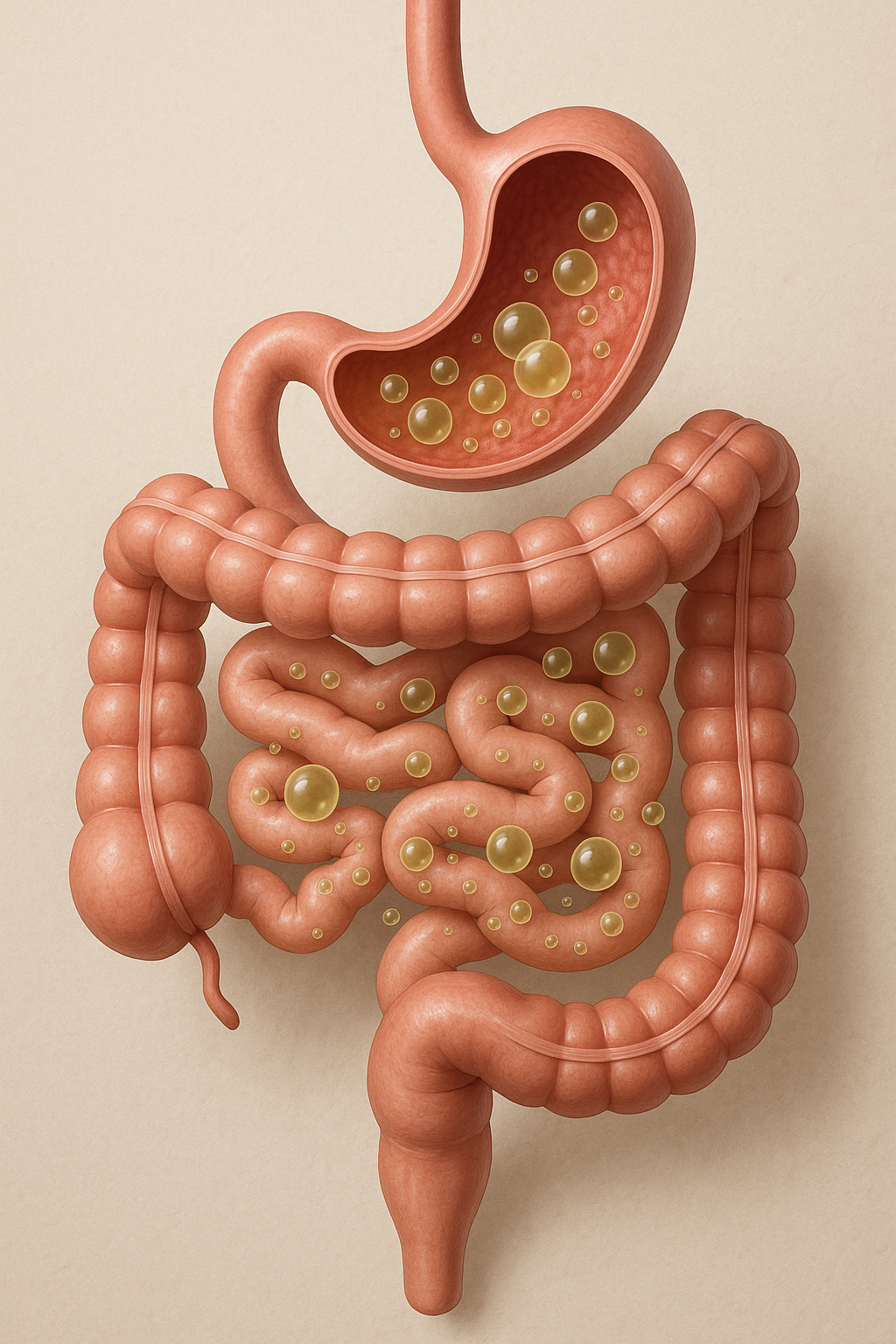
Every time you eat, bacteria in your gut help break down food. This fermentation produces gas — more if you eat high-fibre or hard-to-digest foods. The longer you’ve been eating during the day, the more gas accumulates.
2. Water Retention
Saltier meals, hormonal changes, and even mild dehydration can cause your body to hold onto extra water, especially later in the day. This can make your abdomen feel tighter.
3. Gravity and Posture
When you’re upright all day, gravity pulls food and fluids downward, and your core muscles fatigue. Slouching while sitting can compress your abdomen, trapping gas and slowing digestion.
4. Hormonal Fluctuations
For women, estrogen and progesterone levels can influence digestion and water retention throughout the month. Men may also experience hormonal changes that affect digestion over time.
5. Slower Digestion After 40
As we age, our metabolism and gut motility can slow down. This means food stays in the digestive tract longer, giving gas more time to build up.
How to Reduce Evening Bloat
-
Eat mindfully — Chew thoroughly and avoid gulping drinks to limit swallowed air.
-
Balance your meals — Combine proteins, healthy fats, and gentle fibre sources to support steady digestion.
-
Stay hydrated — Water helps prevent constipation and reduces salt-related water retention.
-
Move throughout the day — Short walks after meals encourage digestion.
-
Check your posture — Sitting upright helps prevent abdominal compression.
-
Space your trigger foods — If beans, dairy, or cruciferous veggies bloat you, enjoy them earlier in the day.
Daily Anti-Bloat Checklist
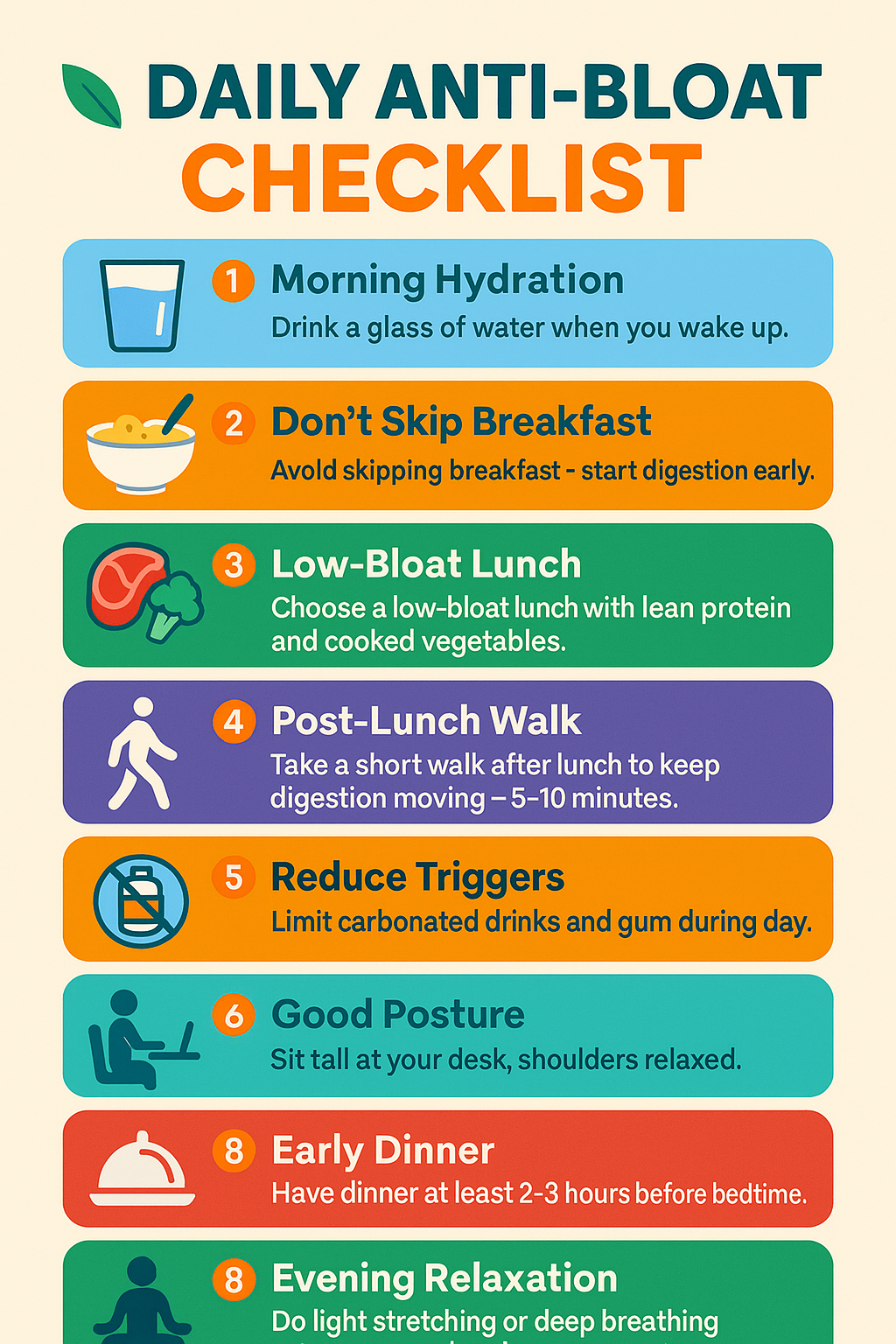
Drink a glass of water when you wake up.
Avoid skipping breakfast — start digestion early.
Choose a low-bloat lunch with lean protein and cooked vegetables.
Take a short walk after lunch to keep digestion moving.
Limit carbonated drinks and gum during the day.
Sit tall at your desk, shoulders relaxed.
Have dinner at least 2–3 hours before bedtime.
Do light stretching or deep breathing in the evening to release trapped gas.
In a Nutshell
A flatter morning belly and puffier evening one is a natural daily rhythm — but small changes in diet, posture, hydration, and movement can make a big difference. By paying attention to how and when you eat, you can end your day feeling just as comfortable as you started. PRIME
Next in the series: When Bloating Signals Something More Serious — Red Flags to Know








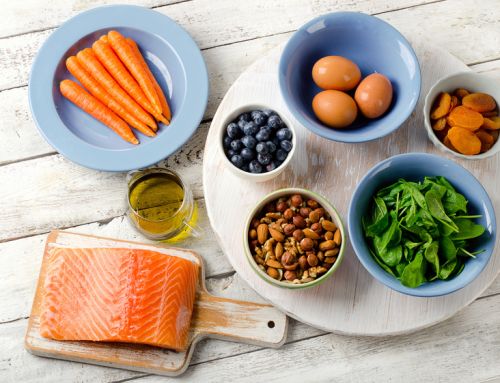
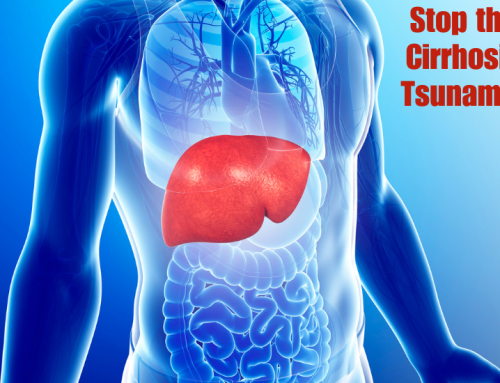

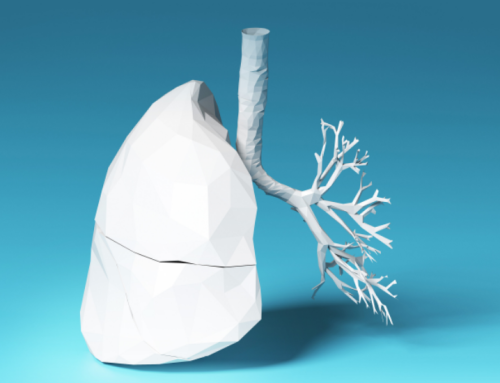
Leave A Comment